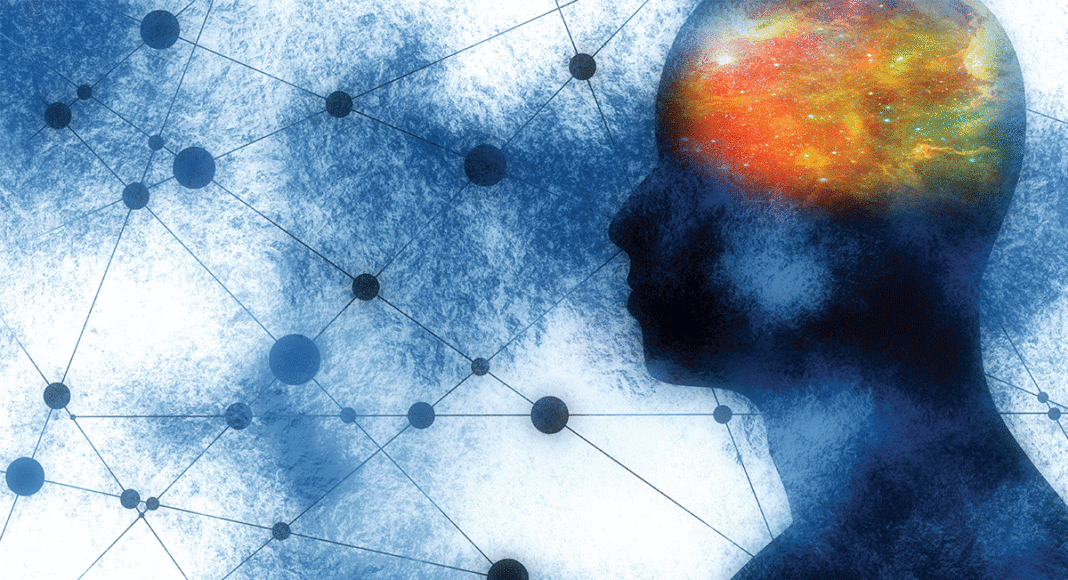[dropcap]I[/dropcap] pop pills like they’re Skittles. Lemon yellow Clozaril. Lime green Neurontin. Berry blue Celexa. The candy colored cocktail of psychiatric medications I take each night keeps me stable and high functioning, and allows me to live a full and fulfilling life. The drugs I’m on also cause ridiculous weight gain, chronic fatigue, a depressed libido, periods of emotional numbness, and more digestive issues than I can count. Despite all of these serious side effects, every evening for the past 13 years, about an hour before bedtime, I’ve tasted the rainbow.
The moment I heard that world-renowned meditation guru Bill Scheffel was bringing his “Transcending Madness” workshop to Santa Cruz on March 17-18 I marked it down on my calendar. According to Scheffel, I’m special. I dig that. The shaggy haired, goateed 63-year-old—famous for his creative writing (he studied with Allen Ginsberg and Anne Waldman), workshops and meditation retreats in the Tibetan Buddhist and Shambhala traditions—believes that all human beings experience “extreme and challenging” states of mind, and that just as many are “gifted” with non-ordinary states.
“Transcending Madness” kicks off with a free public talk at 7 p.m. on Friday, March 16, followed by a two-day workshop geared for those gifted with and/or struggling with non-ordinary and extreme states—the rainbow spectrum of diagnoses is welcome, from bipolar, depression, anxiety, schizophrenia, ADHD, to schizoaffective. Santa Cruz’s own healing-arts masters Annica Rose, founder of the Adaptive Yoga Project, and Aleksandra Wolska, founder of Theater Between, will also teach at the workshop. Scheffel spoke to me about the philosophy behind his workshop.
Can you describe your journey with mental illness?
I had three experiences of ending up in a psych ward after what I call dissociation, which is a natural term. This could be called psychosis or “spiritual emergency.” After the third time, although I’d never had such experiences before in my life, and these happened when I was 58, I accepted the prevailing medical model of bipolar disorder, and was convinced to take psychiatric drugs—antipsychotics—which are really just major tranquilizers. After three years, I decided to go off the drugs to see if I even needed them. After enduring a very difficult withdrawal process, I emerged and realized that the time on the drugs gravely diminished my life force and ability to manifest my life. That led me to realize that I needed to redefine my experience and connect with others who have had similar experiences. In that spirit, I began Transcending Madness—a program to share holistic and alternative tools for mental health.
Is it possible to view mental illness positively?
Your question touches on a number of views. One is seeing people’s experiences not as a disorder, but through the lens of neurodiversity. Neurodiversity arose out of the autism community, in which people did not want to be seen as simply having a disorder, but by having a unique expression of the human experience. If we look at any experience on a spectrum, we see all of us have some of that experience sometimes. Many cultures—especially indigenous ones—have embraced what we call psychosis as an initiatory experience. In those cases, the individual is embraced and guided back toward integration with the understanding that they might have gifts of healing and understanding that they can bring to the community.
What is wrong with today’s mental health system?
Overall, the mental health system has narrowed into a primarily biological model, which tends to insist on the use of psychiatric drugs. Often people’s challenges aren’t deeply explained and they can be misdiagnosed. It’s a view that doesn’t typically embrace the many other models and tools that are available. Another significant problem is that people aren’t always informed about the side effects and other negative effects of psychiatric medications, even though they are so strongly urged to take them, including the insistence that they must be taken. Similarly, with our food, the lobby of the pharmaceutical industry is a very strong influence and tends to dismiss or suppress research and studies critical of drug usage.
What is your opinion on psychiatric medication?
I think the most important need is the full disclosure about the side effects and potential long term problems of psychiatric medications. One of the drugs I took was an anti-psychotic and I learned in hindsight that it had diminished my cognitive capacity, instigated cycles of severe depression, and also diminished my physical strength and sexual vitality.
What’s your favorite part of the Transcending Madness weekend workshop?
Meeting people and finding allies to collaborate with. We get to know each other and learn a lot from each other. The emphasis is on allowing the expression of experience to come forth and be heard. This creates an intimate community, something we’re all hungry for. At the last program I did in December, I met two extremely gifted individuals from the Santa Cruz community—Annica Rose and Aleksandra Wolska. I have invited them to be part of the upcoming program. Annica will teach yoga and Aleksandra will lead us in a creative theater project. I get to share my story and passions, and do what I’ve done throughout my adult life, namely meditation and creative arts. During the morning and afternoon periods, we practice short periods of yoga and meditation, explore mental health subjects, and break into discussion groups. We get to know each other and learn a lot from each other. We also take a break from cell phones.
More info at wisdomcentersc.org.













